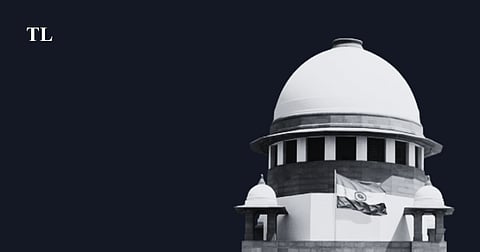

Senior advocate Indira Jaising tells the Supreme Court that resort to secret ballot by the judges to designate senior advocates defeats the very objective of removing the subjective criteria in the process.
——-
THE Supreme Court on Tuesday issued notice to its Secretary-General on an application filed by senior advocate Indira Jaising seeking clarification of the Court's judgment in Indira Jaising vs. Supreme Court of India (2017), in which it was held that while designating senior advocates, voting by secret ballot would not normally be resorted to by the Full Court except when unavoidable. It was held that in the event of resort to secret ballot, decisions would be carried by a majority of the judges who have chosen to exercise their preference/choice.
A three-judge bench of Justices U.U. Lalit, S. Ravindra Bhat, and P.S. Narasimha requested the Attorney General for India to assist the court in the matter as he has been involved in the matter for a long time.
Jaising, who was appearing in person, argued that the High Courts have been resorting to voting by a secret ballot as a matter of norm, instead of an exception, and thus it defeats the very purpose of evaluating the candidate based on the objective criteria laid down by Supreme Court.
In 2017, on a petition by Jaising, the Supreme Court laid down objective criteria to designate the senior advocates. This judgement had introduced the creation of an objective system for assessing advocates based on a 100 Points Index. The index allocates 40 points to the proposition of law advanced, expertise and pro bono work, 15 points to published articles, and 25 points for interview or interaction with the applicant advocate. This assessment is to be done by the Permanent Committee of the court, which is headed by the Chief Justice of India and consists of the two next senior most Judges of the Supreme Court of India. In the case of High Courts, the committee is headed by the Chief Justice, and includes two next senior most Judges of the High Court concerned; the Attorney General for India, or Advocate General of the State in case of a High Court, is also to be a member of the Committee. The above four Members of the Committee nominate another Member of the Bar to be the fifth member of the Permanent Committee.
Jaising pointed out to the bench that the Delhi High Court and the Punjab High Court resorted to a secret ballot. She added there are inherent contradictions in going by marks and then going to voting. She said the whole purpose of her petition on which the said judgment came to be passed was to remove the subjective criteria and if the secret voting is to be resorted to routinely, it will defeat the intent and object of the Court's judgment. Jaising clarified to the Court that she was not challenging the designation of any individual concerned and that her application is confined to seeking clarification on the issue of the secret ballot by the full court.
"Recently, the High Courts of Delhi and of Punjab and Haryana have designated advocates as senior advocates based on their respective rules. In these recent designations, the Applicant has noticed that notwithstanding the judgment of this Hon'ble Court, even after marks are assigned to a candidate by the Committee set up by the rules to scrutinize the applications and assign marks, each and every candidate is put to vote by the full court. Consequently, even those who obtain the cut-off marks decided upon by the High Court are not getting designated if they do not obtain the required number of votes", the application filed by Jaising read.
She argued that if voting is the decisive factor as it seems to be, the marking system as laid down in the above-mentioned objective criteria table becomes of no consequence.
Besides, Jaising raised another issue. She said she received feedback from lawyers expressing concern over what is happening as a prelude to the designation of senior advocates at the high courts: every lawyer aspiring for senior designation with between 10 and 19 years of practice experience is getting the same marks. She suggested that every year of service/practice should be rewarded with one mark. The bench said it would look into this issue.
Apart from Jaising's application, the bench also considered a writ petition filed by three advocates from the Punjab and Haryana High Court challenging the senior designation process carried out by the High Court. Appearing for the petitioners, senior advocate Vikas Singh said that judges whose relatives had been designated were part of the full court voting. Singh pointed out to the Court that a candidate whose name was not recommended by the high court's Permanent Committee had also been designated as a senior advocate.
The Supreme Court said some element must be reserved for the full court too. It eventually agreed to issue notice to the Punjab and Haryana High Court, and directed it to produce all files/material before the Court on the next hearing, that is, April 20.